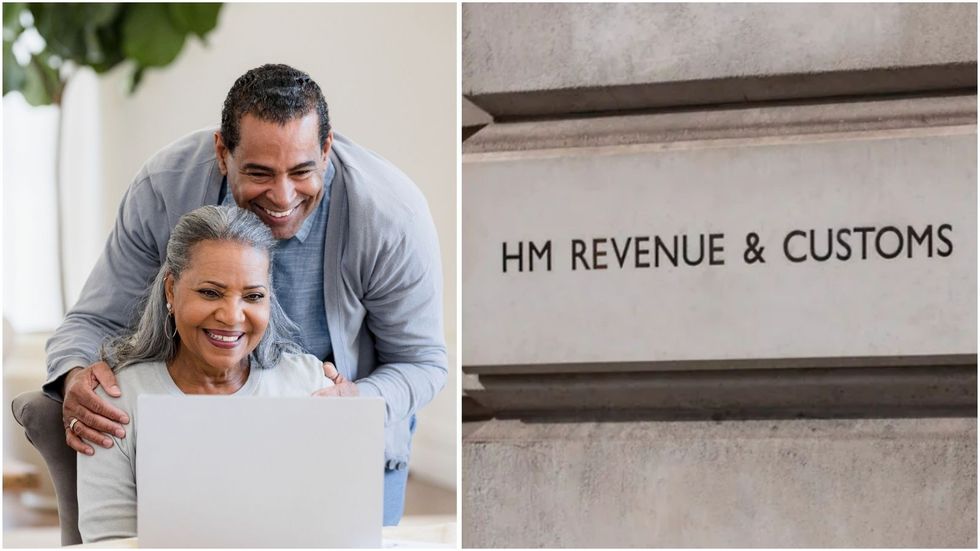HMRC is set to overhaul its “scandalous” tax system that has overcharged pensioners by £1.3billion since 2015.
The move comes after years of campaigning and frustration from savers who’ve had to fight for refunds.
The issue dates back to when Pension Freedoms were introduced in April 2015, allowing people with Defined Contribution pensions to withdraw their savings in chunks instead of locking it into a fixed income for life.
Unfortunately, HMRC applied “emergency tax codes” to these withdrawals, often resulting in pensioners being taxed far more than necessary.
As a result, over 470,000 people have had to claim refunds, totalling an eye-watering £1.37billion. In the past three months alone, nearly £50million has been repaid to more than 14,000 individuals.
HMRC has now given an update to the “scandalous system” in their ‘Pension Schemes Newsletter’, in an article called ‘helping customers get on the right pension pay faster”.

As a result, over 470,000 people have had to claim refunds, totaling an eye-watering £1.37 billion
GETTY
Steve Webb, partner at pension consultants LCP, has campaigned for change on the system for 10 years.
He said: “It is great news that at long last HMRC has listened to the voices of ordinary taxpayers and changed this scandalous system. For too long, hundreds of thousands of people have been overtaxed and had to jump through hoops to claim back their own money.”
HMRC has committed to replacing these outdated emergency tax codes with regular tax codes. This will ensure the correct amount of tax is deducted automatically in real-time.
This change promises to reduce the need for complicated year-end reconciliations and form-filling, especially for those making multiple withdrawals in a single year.
It’s a long-awaited win for pensioners, promising less hassle and more peace of mind when accessing their hard-earned savings.
Jon Greer, head of retirement policy at Quilter said: “HMRC’s latest figures reveal that pension tax overpayment refunds remain a significant issue, with over 14,600 repayment claims processed between October and December 2024, amounting to £49,514,458.
“This equates to an average refund of £3,390 per person. While these figures highlight an ongoing problem, HMRC’s plans to streamline tax coding from April 2025 are a welcome step towards reducing the administrative burden on savers and minimising overpayments in the first place.
“That said, the broader challenges of pension withdrawals persist. Many individuals are still accessing their pension savings to manage financial pressures.
“Such decisions, made in haste, could lead to unintended tax consequences and potentially compromise long-term financial plans.”
LATEST DEVELOPMENTS:
Greer warned that although HMRC’s planned reforms to update tax codes automatically for new pension withdrawals are a positive step, it’s unclear if they will fully fix the system’s issues.
The HMRC article said: “From April 2025 we are improving how tax code information is used for those people who are new to receiving a private pension, so they pay the right amount of tax from the outset.
“We will automatically update the tax code for customers who are on a temporary tax code and would benefit from being on a cumulative code — this means they’ll avoid an overpayment or underpayment at the end of the year.
“There is no need to contact HMRC and once a tax code has been changed we’ll inform customers by letter or digitally if they’ve signed up for paperless in the HMRC app or online.”
Webb explained this new system should mean that far more people are quickly moved on to the correct tax code and no longer end up with an overpayment of tax.
He added: “The tax system is complex enough as it is, and this change should hopefully reduce the complications which pension savers face when they try to access their hard-earned cash.”
Retirees are advised to seek professional financial advice to make tax-efficient withdrawals and avoid overpaying.
Until the reforms are fully in place, Greer explained there’s still a risk of overpayment and a complicated claims process to get money back.
He concluded: “While HMRC’s efforts are a good start, much more needs to be done to create a smoother system for savers.”